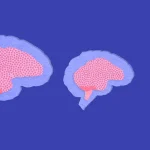“Memory,” argues neuroscientist Charan Ranganath in his new book Why We Remember, “is far more than an archive of the past; it is the prism through which we see ourselves, others, and the world.”
Ranganath, a psychology professor at the University of California, Davis, has spent the last 30 years studying the brain processes that govern our ability to recall, remember, and forget. He contends that many of our popular beliefs about memory are incorrect; its obvious defects frequently stem from its most effective aspects, resulting in cognitive flexibility that was critical for our survival.
He spoke with science journalist David Robson about this cutting-edge understanding of the brain and how we may apply this information to make better use of our perfectly flawed minds.







